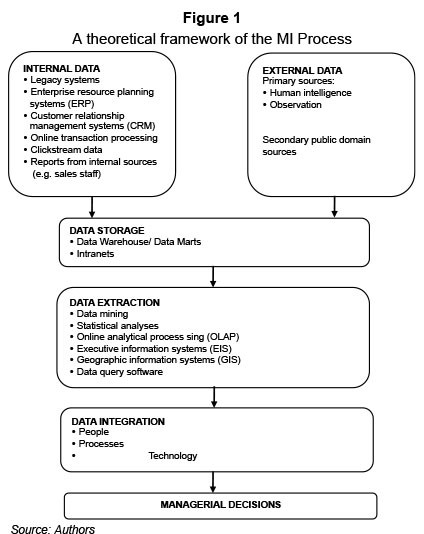Question
1 Introduction The marketing concept states that organisations will be successful if they consistently address the needs of their customers better than their competitors (Walker,
1 Introduction
The marketing concept states that organisations will be successful if they consistently address the needs of their customers better than their competitors (Walker, Mullins & Larrch, 2008). Many organisations accordingly expend a great many resources on efforts to better understand their customers' needs and the nature of the markets they serve.
Given this dependence on external information, it is not surprising that the marketing function has played a leading role over many years in shaping the organisational processes for providing decision-makers with decision-support information. Marketing research originated as early as the 1930s (Taylor, 1936), followed by marketing intelligence (MI) (Kelley, 1965) and marketing information systems (MkIS) (Brien & Stafford, 1969). The importance of information that supports marketing decisions has seemingly endured, with the Marketing Science Institute (2010) suggesting that, in its view, the most important research priority in marketing is "using market information to identify opportunities for profitable growth".
While marketing research, MI and MkIS have all enjoyed some measure of research attention over the years, their relationship with marketing decision-making has been notably absent from leading journals. In particular, the relationship between marketing information and strategic marketing decision-making is an aspect that has not been adequately studied. The literature review undertaken as part of the research reported here uncovered only two such studies. Lackman, Saban and Lanasa (2000) conducted descriptive research on the relationship between MI and strategic marketing. However, this study did not address the relative complexity of MI, and focused on it as one broad concept instead of a complex and interrelating set of subsystems and activities. Another study of interest was conducted by Wee (2001). This latter study considered how large companies in Asia use MI as input into their strategic management system and decision-making. The focus of Wee's study was specifically on the use of the web for MI purposes and the use of web-generated MI in strategic planning. Both studies confirmed the important contribution of MI to strategic marketing, suggesting that further research on the nature of the relationship between MI and strategic marketing could be beneficial to understanding how MI could better serve strategic marketing decision-makers.
The need for strategic MI systems has seemingly never been doubted, and over many years several authors have contributed to the discussion. Guidelines on how MI systems should be
developed have been formulated (Goretsky, 1983), and possible designs for such systems have been proposed (King & Cleland, 1974; Rothschild, 1979; Montgomery & Weinberg, 1998; Mockler, 1992; Trim, 2004). Other authors have suggested that information specialists could participate more in the strategic decision-making process and have outlined conceptual processes for doing so (Trim & Lee, 2008). Yet, despite the importance attached to MI and other marketing information functions, surprisingly few studies have explicitly examined the relationship between MI and strategic marketing decision-making, a gap in the extant literature this article addresses. In addition, a focus on marketing decision-makers in South Africa brings an African perspective to a field dominated by perspectives from other regions. The purpose of the research on which this article is based was thus to explore the relationship between marketing information and strategic marketing from the perspective of South African marketing decision-makers.
In the following sections, the theoretical background to MI and strategic marketing are explored. This is followed by a review of the chosen research methodology and the research findings and conclusions.
2 Marketing intelligence: an overview
For purposes of this article the definition of MI by Tan and Ahmed (1999:298) was used, namely that MI is "a continuing and interacting structure of people, equipment and procedures that, in combination, gather, sort, analyse and distribute pertinent, timely and accurate information for use by marketing decision-makers to improve their marketing planning, implementation and control". Wee (2001) cautions that MI differs from market research, as the emphasis of MI is on the regular and systematic collection of data. On the other hand, typical market research projects examine specific problems, and are non-routine in nature. A framework depicting the MI process was subsequently developed to reflect the theoretical foundation of this study (see Figure 1). This framework emphasises the important role of information technology (IT) in the MI process.

Step by Step Solution
There are 3 Steps involved in it
Step: 1

Get Instant Access to Expert-Tailored Solutions
See step-by-step solutions with expert insights and AI powered tools for academic success
Step: 2

Step: 3

Ace Your Homework with AI
Get the answers you need in no time with our AI-driven, step-by-step assistance
Get Started


